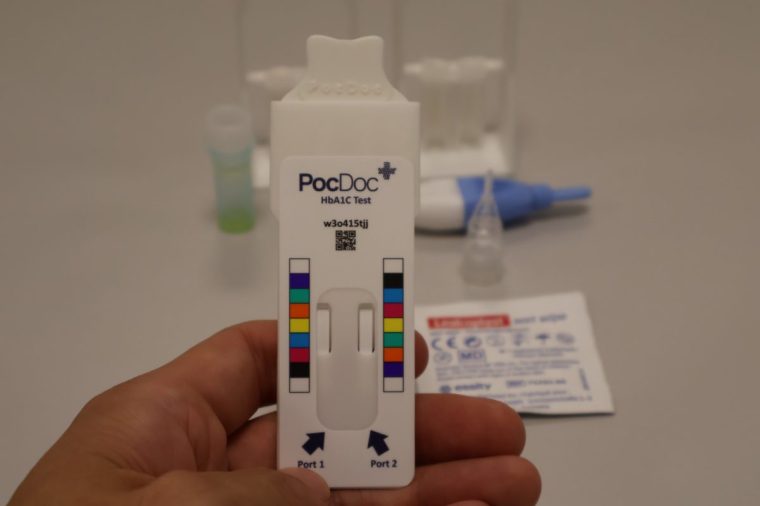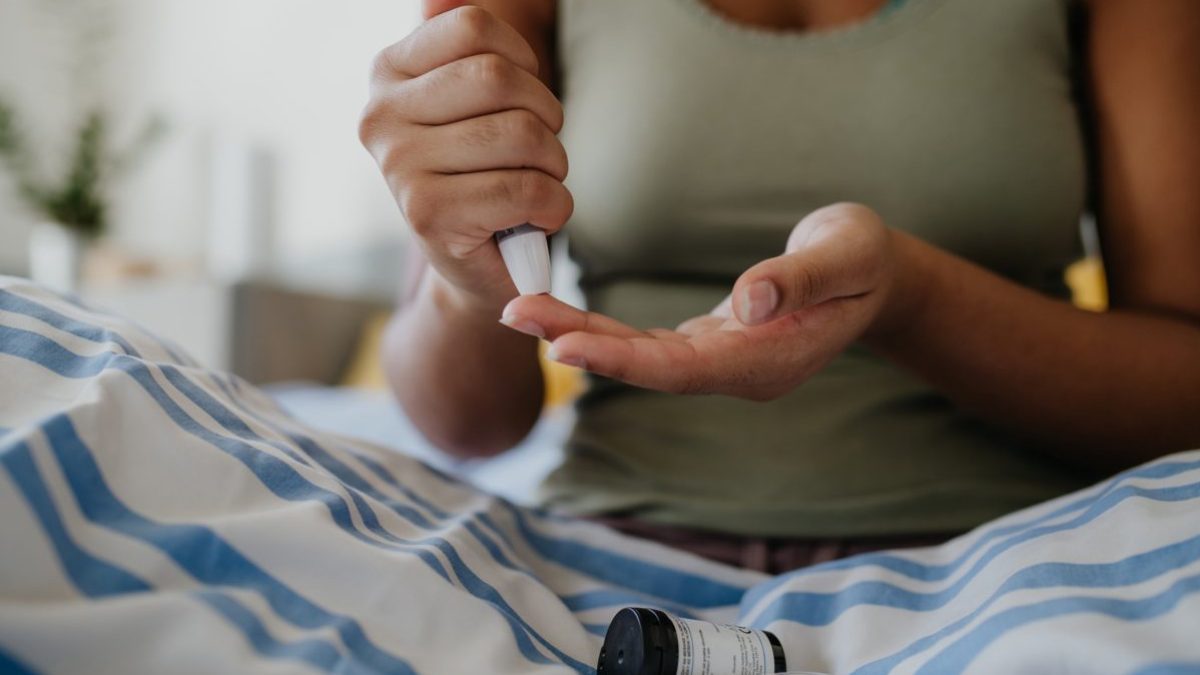‘Potential game-changer’ could save the NHS billions and prevent tens of thousands of heart attacks and strokes
The world’s first health check for type 2 diabetes that combines the “gold standard” finger prick test with your smartphone will cut diagnosis time from months to less than 10 minutes.
NHS trusts in Cumbria and the North East of England are the first to give patients access to the Diabetes Health Check app, with a nationwide rollout planned for later this year.
The Government said it is a “potential game-changer” in the fight against diabetes, and its creators, Cambridge-based company PocDoc, said it could save the NHS billions.
New FeatureIn ShortQuick Stories. Same trusted journalism.
Around 5.2 million people in the UK have been diagnosed with type 2 diabetes and a further 1.3 million are undiagnosed, putting a significant financial strain on the healthcare system.
Around £9bn is spent on treating complications arising from diabetes, such as heart disease, kidney problems, and nerve damage. Studies suggest that the annual cost of the disease could increase to £16.9 bn in the next 25 years.
“Enabling screening for type 2 diabetes risk including blood biomarkers via a smartphone app is something that has never been done before,” said PocDoc chief executive Steve Roest.
The HbA1c finger prick blood test is the gold standard because it measures average blood glucose levels over the past two to three months, providing a more comprehensive view than daily blood sugar tests.
Roest said the app aligns directly with the aims of Health Secretary Wes Streeting’s 10-year plan for the NHS – enabling earlier detection and prevention, delivering more personalised care pathways, and moving testing and diagnosis into community and home settings.
“There’s an enormous gap in screening people for preventable diseases,” he said. “The current system – not just in the UK, but globally – cannot find, risk assess, and diagnose enough people to make any dent in the fight against things like heart attacks, strokes, and type 2 diabetes.”
Health minister Stephen Kinnock told The i Paper that the app rollout was important because type 2 diabetes is on the rise across England.
“This is a potential game-changer and exactly the type of technology we want to see in the NHS as part of the 10 Year Health Plan – bringing our health service firmly into the 21st century and care directly into people’s homes.
“We will make using the NHS as simple and convenient as online banking or shopping, while helping companies bring new technology into the health service more quickly.”
The seed of the device was planted 30 years ago when Roest was a teenager and witnessed his father having a catastrophic stroke in his early forties, due to undiagnosed cardiovascular disease (CVD).
“Using smartphones to deliver diagnostics is exactly what could have saved my dad from having so many [health] problems. He’s cost the NHS a fortune,” Roest said.
The app’s launch comes 24 hours after the Government announced the biggest shake-up of diabetes care in a decade. Around 750,000 patients with CVD or early-onset diabetes would benefit from weight-loss drugs such as liraglutide or semaglutide sooner, rather than keeping them for the later stages of treatment, new guidance states.
Pilot under way in North East
A pilot of the Diabetes Health Check is under way in the North East of England and North Cumbria as part of a testing project commissioned by the Health Innovation North East and North Cumbria (HI NENC).
Roest credits NHS England chief executive Sir Jim Mackey, who was previously in charge of Newcastle upon Tyne Hospitals NHS Foundation Trust and Northumbria Healthcare NHS Foundation Trust, for bringing advanced health tech to the North East.
“He’s created this innovation hotbed in the region and they have been trialling the diabetes check,” Roest said. “More hospitals are using it and excited about it.”
NHS trusts that have bought the technology will focus on going into communities, including religious centres, and workplaces to deliver the test before a take-home version is rolled out across the NHS later in the year.
 ‘Enabling screening for type 2 diabetes risk including blood biomarkers via a smartphone app is something that has never been done before,’ said PocDoc chief executive Steve Roest
‘Enabling screening for type 2 diabetes risk including blood biomarkers via a smartphone app is something that has never been done before,’ said PocDoc chief executive Steve Roest
Roest said: “We want to reach those areas that have traditionally been hard to reach – those on zero-hour contracts or mothers who find it extremely difficult to make multiple appointments. It will also relieve a lot of pressure on GPs too.”
Focus on hard to reach patients
HI NENC medical director Professor Julia Newton has been working with the Cambridge-based company for several years and credits it for developing technology to rapidly improve disease prevention.
“Most people over the age of 40 are invited for a NHS health check every five years, but depending on where you live a large chunk don’t attend,” she said.
“One of the reasons we’ve found is accessing a health check in a conventional setting. So if those tests are made more easily available, which this test does, then we have the opportunity to reach far more people.
“And if someone’s result does come back showing more tests need doing, recommendations about that can be made there and then. If you consider the number of people with diabetes who go onto have heart attacks and strokes, if we can manage their risk before it becomes a problem that will reduce admissions to hospital, reduce mortality, and reduce complications from diabetes, such as kidney disease, heart disease, and stroke disease.”
